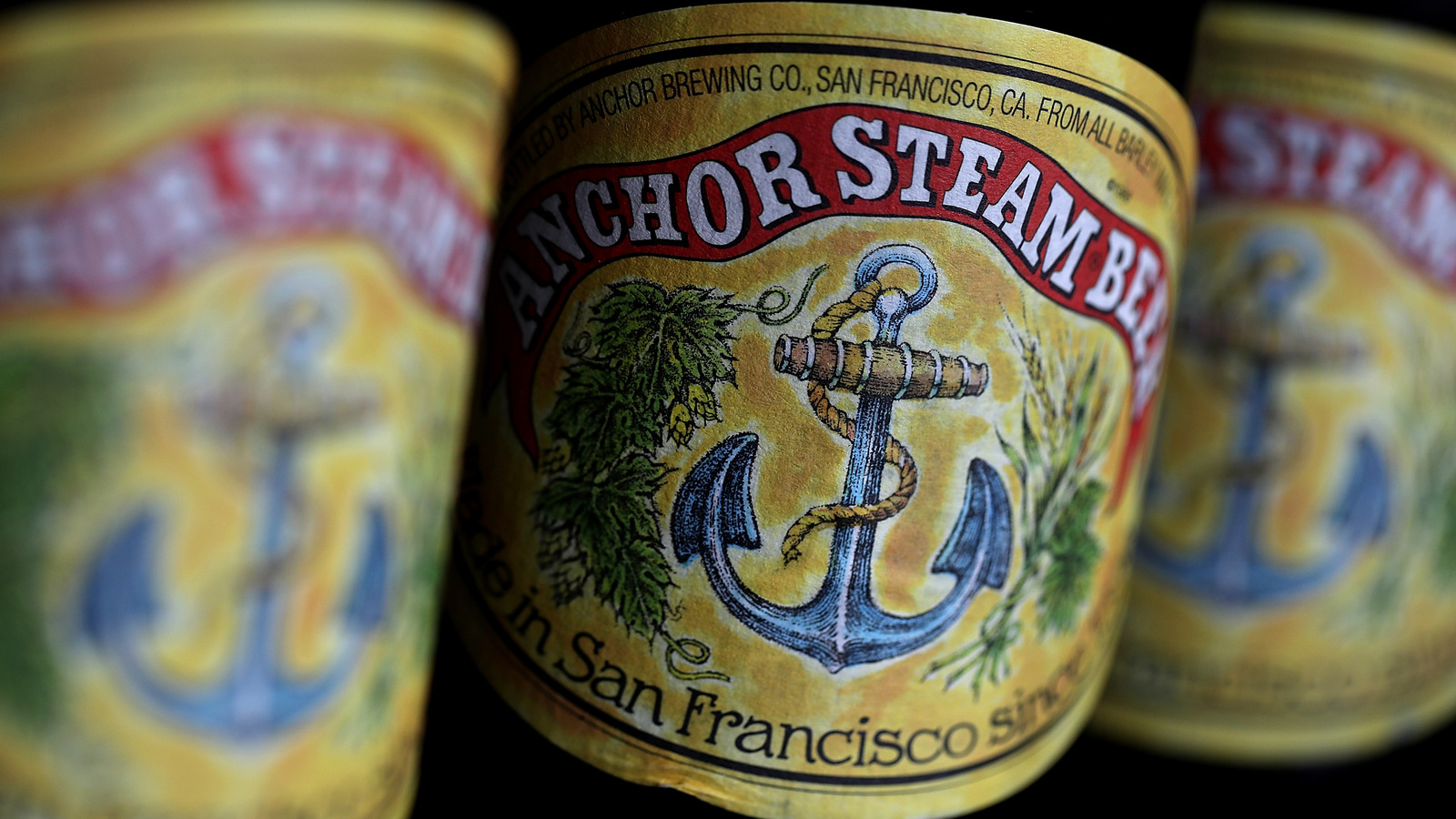Anchor Brewing Company's Closure: A Legacy In Beer Brewing Ends

Table of Contents
The Financial Struggles Leading to the Anchor Brewing Company Closure
The Anchor Brewing Company closure wasn't a sudden event; it was the culmination of years of mounting financial pressures. Two key factors contributed significantly to the brewery's demise: declining sales and market competition, and rising production costs fueled by inflation.
Declining Sales and Market Competition
Anchor faced increasing competition from both large multinational breweries and a burgeoning number of smaller, craft breweries. This intensified competition led to a struggle to maintain market share in a rapidly evolving beer market.
- Increased competition from established craft breweries: The craft beer market exploded in recent decades, leading to a saturated market with many breweries vying for consumer attention.
- Changing consumer preferences: Trends in beer styles shifted, with IPAs and other bolder styles gaining immense popularity, presenting challenges for a brewery with a more traditional portfolio.
- Impact of the pandemic: The COVID-19 pandemic significantly disrupted the on-premise (bar and restaurant) sales sector, a crucial revenue stream for many breweries, including Anchor.
- Struggles with distribution: Effectively reaching consumers in a crowded marketplace, especially with larger competitors boasting superior distribution networks, proved increasingly difficult.
While precise sales figures aren't publicly available for the period leading up to the closure, reports indicate a consistent decline in sales for several years.
Rising Production Costs and Inflation
The rising cost of raw materials and overall inflation significantly impacted Anchor's profitability. The brewery faced escalating expenses across the board.
- Increased cost of barley, hops, and other ingredients: These essential brewing components experienced price increases, squeezing profit margins.
- Rising energy prices: The cost of energy, crucial for brewing and refrigeration, soared, adding another layer of financial pressure.
- Labor costs: Increasing minimum wages and the need to compete for skilled labor added to the brewery's operational expenses.
These cost increases forced Anchor into difficult pricing decisions, potentially impacting sales further in a competitive market.
The Impact of Anchor Brewing Company's Closure on the Craft Beer Industry
The Anchor Brewing Company closure reverberates throughout the craft beer world, signifying a significant loss and raising concerns about the future of smaller breweries.
Loss of a Pioneer and Icon
Anchor Brewing Company played a pivotal role in the development of the American craft beer movement. Its influence on brewing styles and techniques is immeasurable.
- Anchor's pioneering role in brewing styles: The brewery revived and popularized the California Common style, known as Anchor Steam Beer, setting a precedent for innovation and experimentation.
- Its influence on other breweries: Countless breweries cite Anchor as an inspiration, highlighting its impact on brewing techniques and business models.
- Its cultural significance: Anchor's beers became synonymous with quality and tradition, holding a unique place in American beer culture.
The brewery's consistent quality and its commitment to traditional brewing methods earned it widespread respect and recognition.
Future of Independent Breweries
Anchor's closure underscores the challenges faced by smaller, independent breweries.
- Challenges facing independent breweries: Competition, rising costs, and changes in consumer preferences all contribute to the precarious position of many independent craft breweries.
- Potential consolidation within the industry: Larger breweries may acquire struggling smaller players, potentially leading to decreased diversity and less choice for consumers.
- The need for support for independent brewers: Sustaining the craft beer industry requires support for smaller breweries, perhaps through initiatives promoting local consumption or advocating for fairer market regulations.
The closure raises concerns about the future of craft beer diversity and the potential for increased market concentration.
Remembering Anchor Brewing Company's Legacy
Anchor Brewing Company leaves behind a legacy defined by its iconic beers and innovative brewing techniques.
Key Beers and Innovations
Anchor's most famous beers hold a special place in beer history.
- Anchor Steam Beer: This California Common style became a flagship beer and a symbol of San Francisco's brewing heritage.
- Liberty Ale: This American-style ale further solidified Anchor's reputation for quality and innovation.
- Other notable beers: The brewery produced a diverse portfolio of beers, constantly innovating and experimenting with different styles.
- Unique brewing processes: Anchor's commitment to traditional methods, while adapting to modern techniques, earned it respect within the brewing community.
These beers weren't just beverages; they were part of the cultural landscape.
The Anchor Steam Brand and its Future
The Anchor Steam brand has been acquired by Sapporo, raising questions about its future.
- The sale of the brand: The acquisition by Sapporo provides a lifeline for the brand but also introduces uncertainty regarding future production and direction.
- Potential changes in production: Changes in production methods or recipes are potential outcomes of the acquisition.
- The brand's future prospects: The success of the Anchor Steam brand under new ownership depends on the ability to maintain its quality and appeal while adapting to market demands.
The fate of the Anchor Steam brand remains to be seen but serves as a pivotal case study for navigating the complexities of the modern brewing industry.
Conclusion
The Anchor Brewing Company closure marks a significant turning point in the American craft beer industry. While the reasons behind its demise are complex, involving financial struggles and intense market competition, its legacy as a pioneering brewery remains undeniable. The impact of this closure extends beyond the loss of a single brewery; it raises concerns about the future of independent brewers and the ongoing challenges in the craft beer market. Let us remember Anchor's contribution and learn from its story to ensure that the rich tapestry of craft beer continues to thrive. Learning from the Anchor Brewing Company closure is vital for the future of independent breweries. We must support those breweries still striving to create unique and innovative craft beers.

Featured Posts
-
 Keanu Reeves John Wick A Definitive End Or A Possible Resurrection In John Wick 5
May 11, 2025
Keanu Reeves John Wick A Definitive End Or A Possible Resurrection In John Wick 5
May 11, 2025 -
 Rich Kids Cribs A Peek Inside Luxurious Mansions Mtv Cribs Style
May 11, 2025
Rich Kids Cribs A Peek Inside Luxurious Mansions Mtv Cribs Style
May 11, 2025 -
 Are Selena Gomez And Benny Blanco Expecting A Baby
May 11, 2025
Are Selena Gomez And Benny Blanco Expecting A Baby
May 11, 2025 -
 Royal Honors Row Pvv Ministers Stand On Asylum Volunteers
May 11, 2025
Royal Honors Row Pvv Ministers Stand On Asylum Volunteers
May 11, 2025 -
 Phil Collins Serious Health Issues A Recent And Worrying Update
May 11, 2025
Phil Collins Serious Health Issues A Recent And Worrying Update
May 11, 2025
